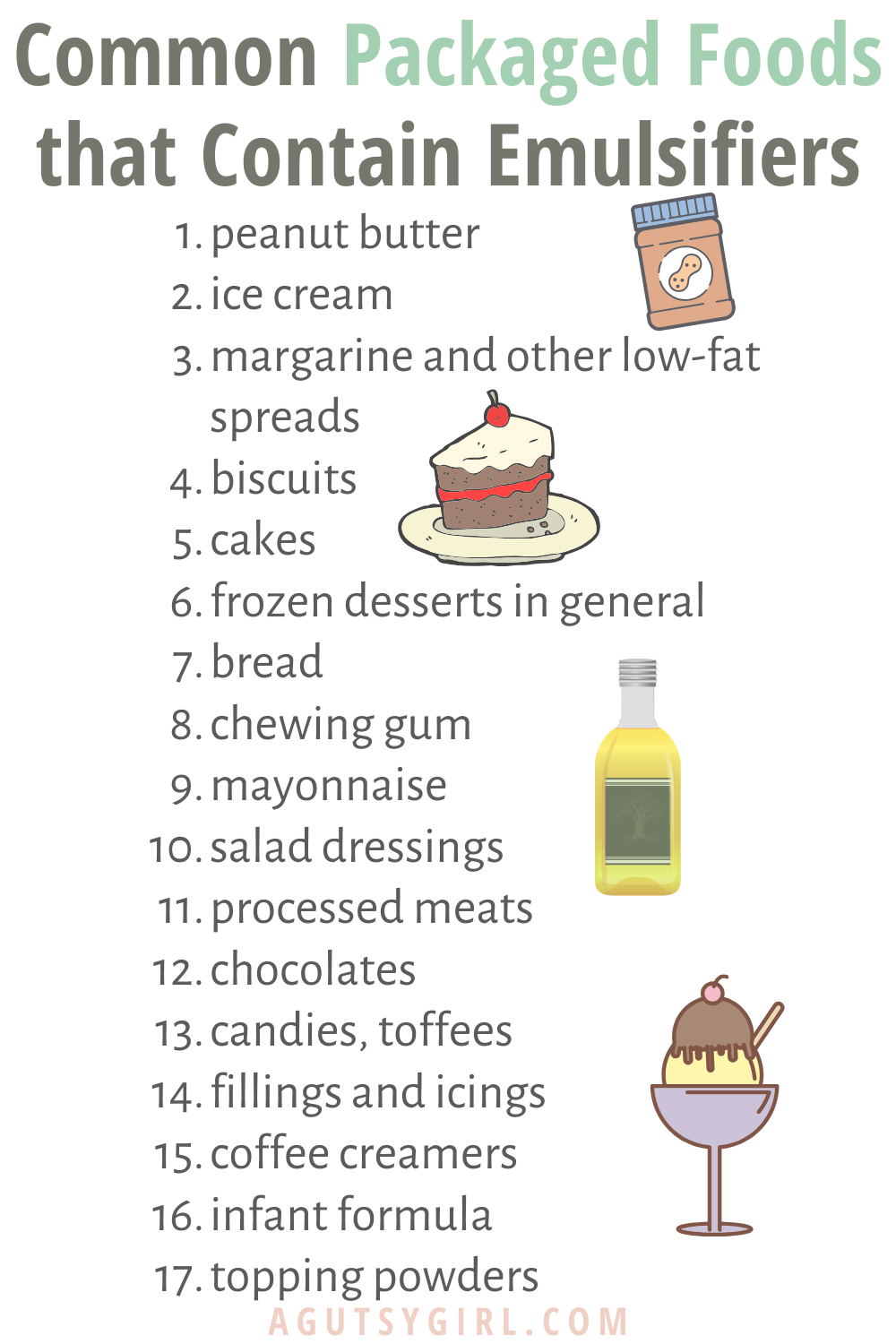Reveal the Advantages of Making Use Of an Emulsifier in Food for Enhanced Culinary Experiences
Emulsifiers are commonly ignored yet crucial components in culinary methods. They facilitate the blending of inconsonant ingredients, boosting both flavor and appearance. By making certain security, emulsifiers avoid the unattractive separation of mixes. Their versatility covers various applications, from sauces to dressings. Recognizing their feature can result in substantial improvements in food top quality and presentation. What specific advantages do emulsifiers offer that can change everyday recipes right into phenomenal cooking experiences?
Recognizing Emulsifiers: What They Are and Exactly how They Function
Emulsifiers play an essential role in the food sector, working as agents that help with the blending of water and oil, 2 compounds that generally do not mix. These substances have both hydrophilic (water-attracting) and hydrophobic (oil-attracting) buildings, enabling them to maintain mixtures by reducing the surface area stress in between the two phases. Common emulsifiers include lecithin, mono- and diglycerides, and specific proteins.
When included to food items, emulsifiers create a stable emulsion, stopping separation and guaranteeing a consistent texture - Emulsifier In Food. They are crucial in many applications, ranging from salad dressings and mayo to gelato and sauces. By preserving the integrity of mixes, emulsifiers not only boost the aesthetic appeal of food but also enhance mouthfeel and uniformity. Their capacity to stabilize solutions makes them indispensable in modern-day food formulation, adding substantially to the high quality and rack life of various items
The Duty of Emulsifiers in Taste Enhancement
While typically overlooked, emulsifiers greatly add to taste improvement in food products. They play an important duty in boosting the total preference experience by ensuring that flavor substances are equally distributed throughout a dish. By supporting solutions, such as dressings or sauces, emulsifiers prevent the separation of oil and water, allowing flavors to fuse with each other better. This consistent distribution not just escalates the taste yet also ensures that each bite is continually flavorful.
Emulsifiers can boost the assumption of specific tastes, making them much more obvious on the taste. They might connect with specific ingredients, helping to launch unpredictable taste substances that add to a recipe's fragrant account. The use of emulsifiers can considerably elevate the cooking experience, transforming easy recipes right into complex and wonderful taste trips. Their refined yet impactful function in taste improvement should not be underestimated in the art of cooking.
Emulsifiers and Structure: Developing Creamy and Velvety Cuisines
The influence of emulsifiers expands past taste enhancement to the domain name of appearance, where they are crucial in creating creamy and creamy recipes. By promoting the consistent circulation of fats and water, emulsifiers allow the development of stable solutions, resulting in a glamorous mouthfeel. This is especially apparent in items like mayo, sauces, and dressings, where a smooth, velvety consistency is wanted.
Emulsifiers such as lecithin and mono- and diglycerides work to reduce surface stress between active ingredients, enabling an unified blend that improves the sensory experience. The velvety texture accomplished through emulsification can raise recipes, making them much more enticing and enjoyable. In addition, the capability to create find more information a silky texture permits cooks to integrate different ingredients without jeopardizing consistency, leading to ingenious culinary productions. Essentially, emulsifiers play a vital role in changing average meals into amazing culinary experiences with texture enhancement.
Security Matters: How Emulsifiers Prevent Separation
A critical element of culinary emulsifiers is their capability to stop separation, making certain that items preserve their desired texture and appearance with time. Emulsifiers work by supporting combinations of oil and water, which naturally have a tendency to separate due to differences in density and polarity. By minimizing surface stress at the oil-water interface, emulsifiers assist in the formation of stable emulsions, allowing for an uniform distribution of components.

Common Emulsifiers in Cooking and Their Applications
Comprehending the numerous emulsifiers generally utilized in food preparation exposes their substantial roles in improving food appearance and stability. Lecithin, obtained from egg yolks or soybeans, is widely employed in mayo and salad dressings, providing a creamy uniformity. Mustard, also an emulsifier, aids in maintaining vinaigrettes while imparting flavor.


Another popular emulsifier is xanthan gum tissue, regularly made use of in gluten-free baking and sauces for its thickening properties. Guar gum go to these guys tissue serves a similar function, enhancing the structure of gelato and dairy products.
Mono- and diglycerides, typically found in processed foods, assistance boost service life and keep appearance. Casein, a milk healthy protein, is used in cheese-making and velvety sauces, contributing to a smooth mouthfeel. Each of these emulsifiers plays a vital role in cooking applications, avoiding and making certain preferable appearances splitting up in diverse food.
Frequently Asked Inquiries
Are Emulsifiers Safe for People With Food Allergies?
Emulsifiers can be safe for people with food allergic reactions, depending upon the specific emulsifier made use of. It is important to determine the source of the emulsifier, as some may set off allergies in sensitive individuals.
Exactly How Do Emulsifiers Influence the Nutritional Material of Food?
Emulsifiers can influence the dietary material of food by enhancing vitamins and mineral absorption and boosting texture. Their presence may likewise water down specific nutrients, depending on the food matrix, possibly modifying general nutritional worth.
Can Emulsifiers Be Utilized in Vegan Food Preparation?
Emulsifiers can be properly utilized in vegan cooking, providing texture and security to dishes. Plant-based emulsifiers like lecithin, originated from soy or sunflower, aid mix active ingredients, boosting the overall top quality of vegan culinary creations.
What Are the Environmental Effects of Emulsifier Manufacturing?
The environmental impacts of emulsifier manufacturing typically include deforestation, water pollution, and high power intake. Additionally, some resources of emulsifiers can add to biodiversity loss, increasing concerns regarding sustainability in food production techniques.
How Do Emulsifiers Compare to All-natural Thickeners in Cooking?
Emulsifiers provide smoother structures and improved security contrasted to natural thickeners, which can present distinct flavors - Emulsifier In Food. While emulsifiers read this enhance mouthfeel and look, all-natural thickeners provide more health advantages and can contribute to the recipe's taste profile
When added to food items, emulsifiers produce a secure emulsion, stopping splitting up and making certain a consistent structure. While commonly overlooked, emulsifiers substantially add to flavor enhancement in food products. Comprehending the different emulsifiers frequently made use of in cooking reveals their substantial duties in boosting food texture and security. Emulsifiers can be secure for people with food allergic reactions, depending on the particular emulsifier used. Emulsifiers can affect the nutritional content of food by improving nutrition absorption and improving structure.